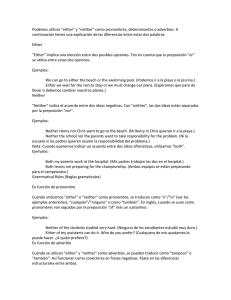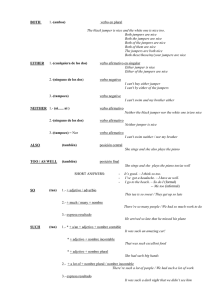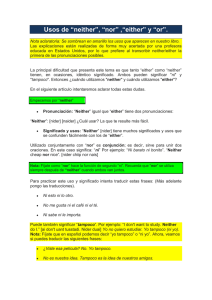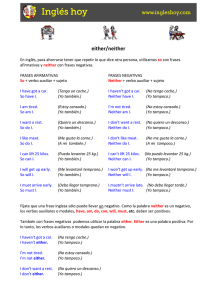Both, either and neigther
Anuncio
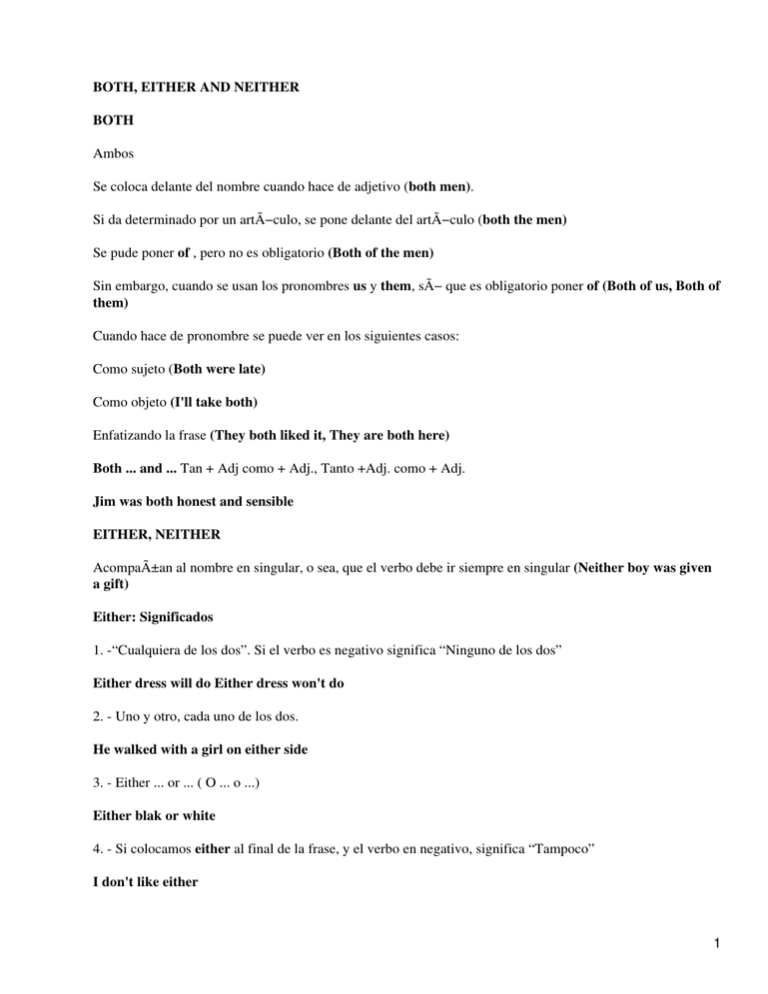
BOTH, EITHER AND NEITHER BOTH Ambos Se coloca delante del nombre cuando hace de adjetivo (both men). Si da determinado por un artÃ−culo, se pone delante del artÃ−culo (both the men) Se pude poner of , pero no es obligatorio (Both of the men) Sin embargo, cuando se usan los pronombres us y them, sÃ− que es obligatorio poner of (Both of us, Both of them) Cuando hace de pronombre se puede ver en los siguientes casos: Como sujeto (Both were late) Como objeto (I'll take both) Enfatizando la frase (They both liked it, They are both here) Both ... and ... Tan + Adj como + Adj., Tanto +Adj. como + Adj. Jim was both honest and sensible EITHER, NEITHER Acompañan al nombre en singular, o sea, que el verbo debe ir siempre en singular (Neither boy was given a gift) Either: Significados 1. -“Cualquiera de los dos”. Si el verbo es negativo significa “Ninguno de los dos” Either dress will do Either dress won't do 2. - Uno y otro, cada uno de los dos. He walked with a girl on either side 3. - Either ... or ... ( O ... o ...) Either blak or white 4. - Si colocamos either al final de la frase, y el verbo en negativo, significa “Tampoco” I don't like either 1 Neither: Significados 1. - Ninguno de los dos Which one do you want? Neither Si hay más de dos se usa none 2. - Neither ... nor (Ni ... ni ...) Neither black nor white 3. - Con el verbo afirmativo e invirtiendo el sujeto y el verbo (Neither do I, etc.) significa Tampoco.) I don't like it. Neither do I (También Nor do I) Puede darse el caso con either ...or y con neither .. nor de que las dos partes no vayan en singular. Neither he nor she likes you Either he or the BOYS ARE wrong Either he or I AM mistaken En este último caso se prefiere Either he is mistaken or I am 2
